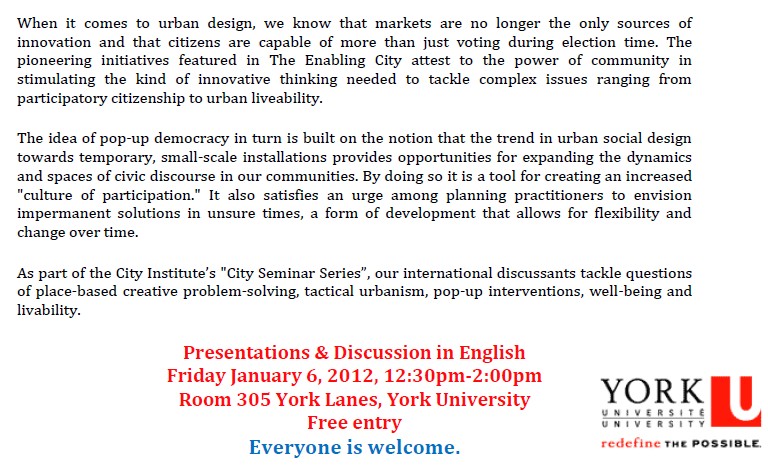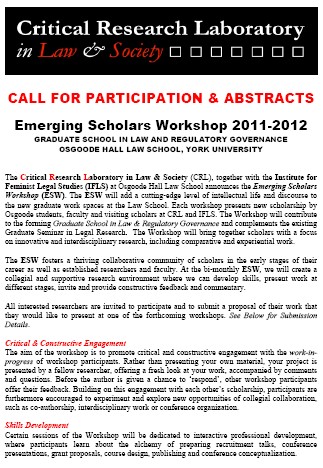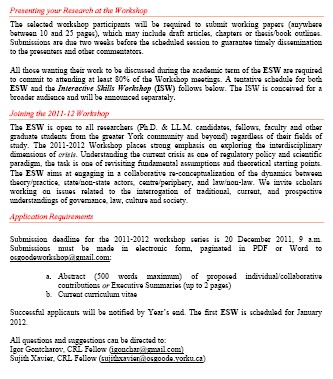The following appeared in the Thursday, December 8, 2011 edition of YFile.
For a chance to win $50,000 and fund 75 better-planet projects at schools across Canada, York-based Learning for a Sustainable Future (LSF) has entered its EcoLeague program in Shell Canada’s Fuelling Change competition. Now it needs your vote.
EcoLeague is one of 14 entries vying for four $50,000 prizes in this competition. So far, it is in fifth spot and needs more online votes to push into the top four.

Through Fuelling Change, Shell Canada is granting $1 million to support environmental projects and organizations selected by voters that improve and restore Canada’s environment. This is the second competition in two years.
EcoLeague was established in 2006. It is one of several school-based sustainability action programs supported by LSF, a nonprofit Canadian organization housed at York’s Institute for Research & Innovation in Sustainability (IRIS) – and celebrating its 20th anniversary this year.
EcoLeague, which offers eight “recipes for action” on its website, would use the funding to facilitate action days and fund action projects up to $400. In 2010, the EcoLeague project review committee granted funds for 157 action  projects across Canada and facilitated 18 action days at Toronto-area schools. Winning $50,000 in the Fuelling Change competition means funds for 75 action projects.
projects across Canada and facilitated 18 action days at Toronto-area schools. Winning $50,000 in the Fuelling Change competition means funds for 75 action projects.
Left: Schoolyard naturalization is the most popular EcoLeague project
The goal of EcoLeague projects is to increase awareness about sustainability issues, engage students, and benefit the school and/or local community. After the project ends, students reports – including metrics, pictures, videos and stories – are posted on the EcoLeague website.
Greening projects are very popular, says Randall Brown, EcoLeague project coordinator. Schoolyard naturalization – planting native plants and food gardens – “is definitely a big one,” she says. So is “Ban the Bottle”, where kids raise money selling reusable water bottles to buy a filling station and discourage the purchase of bottled water. Other recipes for action include building a vermicomposter, cleaning shorelines, making reusable bags, campaigning to stop vehicles idling near schools, raising awareness about water pollution and electricity conservation. EcoLeague also encourages students to design their own projects.
 This is the first time LSF has entered the Fuelling Change competition to help raise funds for EcoLeague, says Annette Dubreuil, IRIS coordinator. As a nonprofit organization, LSF is constantly fundraising to support its programs and has many corporate sponsors.
This is the first time LSF has entered the Fuelling Change competition to help raise funds for EcoLeague, says Annette Dubreuil, IRIS coordinator. As a nonprofit organization, LSF is constantly fundraising to support its programs and has many corporate sponsors.
Left: Students handle the worms in their new vermicomposter
LSF’s youth-engagement expenses in 2010 were $342,000. A $50,000 boost from Fuelling Change would cover material expenses for an estimated 75 action projects.
“Help support EcoLeague and celebrate LSF’s 20th anniversary by giving us a vote in the Fuelling Change competition,” urges Dubreuil.
To find out how to vote, visit the Fuelling Change website. Voting ends April 30.
By Martha Tancock, YFile contributing writer








 projects across Canada and facilitated 18 action days at Toronto-area schools. Winning $50,000 in the Fuelling Change competition means funds for 75 action projects.
projects across Canada and facilitated 18 action days at Toronto-area schools. Winning $50,000 in the Fuelling Change competition means funds for 75 action projects. This is the first time LSF has entered the Fuelling Change competition to help raise funds for EcoLeague, says Annette Dubreuil, IRIS coordinator. As a nonprofit organization, LSF is constantly fundraising to support its programs and has many corporate sponsors.
This is the first time LSF has entered the Fuelling Change competition to help raise funds for EcoLeague, says Annette Dubreuil, IRIS coordinator. As a nonprofit organization, LSF is constantly fundraising to support its programs and has many corporate sponsors.